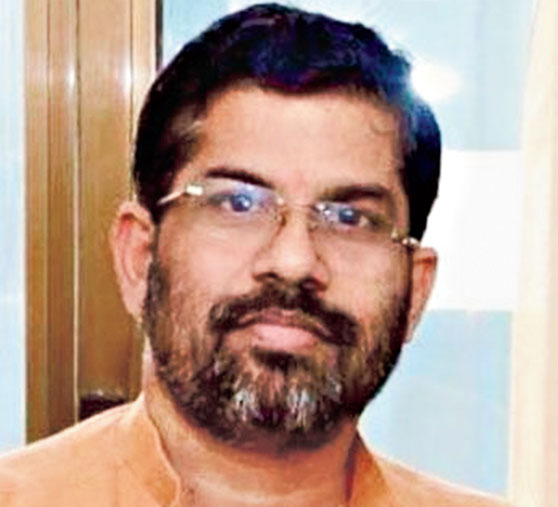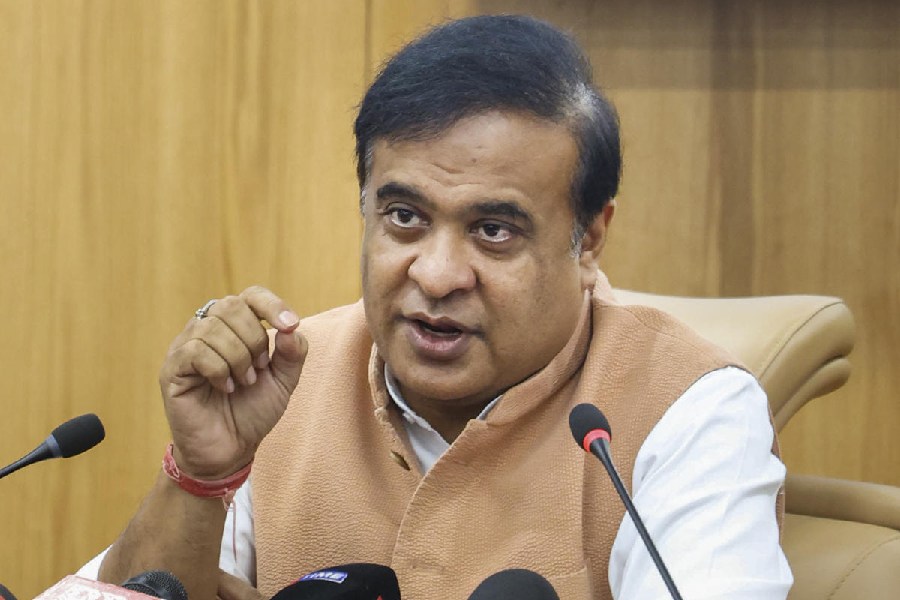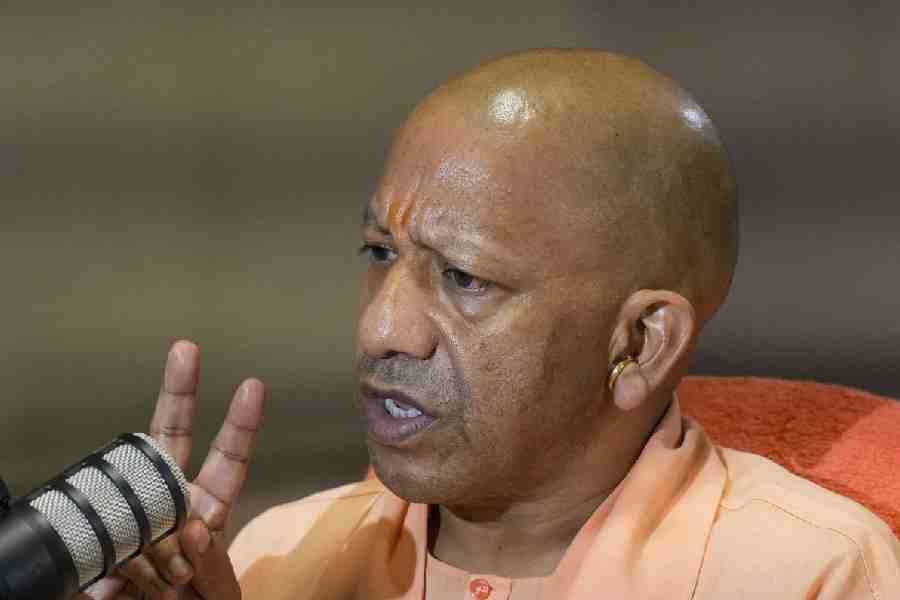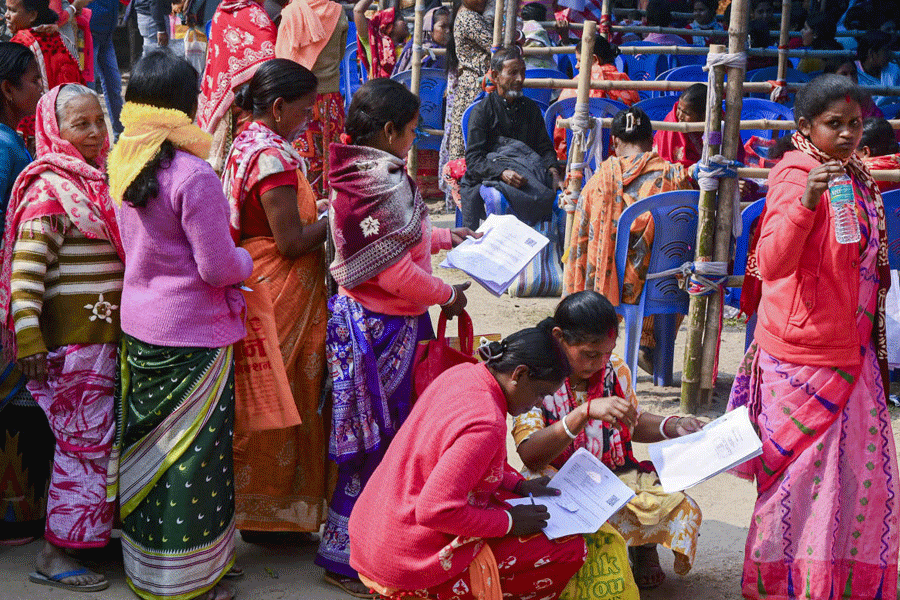Swami Sandeepananda Giri, the reformist Kerala monk pilloried by trolls after his ashram faced an arson attack on Saturday, has long been a target for Sangh parivar supporters for his liberal view of Hinduism.
If the latest diatribes owed to his support for the Supreme Court judgment lifting the age bar on women visiting the Sabarimala temple, his metaphorical reading of the
Bhagavad Gita had been the initial trigger for those favouring a more literal interpretation.
Over the past decade, the 52-year-old says, his progressive outlook on Hinduism and staunch criticism of the Sangh parivar’s ideology has earned him insults, threats, a disparaging nickname and even a physical attack.
On Sunday, he explained to The Telegraph how his nuanced explanations of the Gita, focusing on what he saw as the “inner meaning” of its text, had earned him the wrath of traditionalists.
“The religious fundamentalists see the Bhagavad Gita from the perspective of a war and its travails and trauma. But I see it differently,” Sandeepananda said from his ashram on Thiruvananthapuram’s fringes, where a special investigation team is probing the torching of two vehicles on Saturday morning.
“To me, it symbolises the battlefield inside each of us. The 101 Kauravas represent that number of negative thoughts in each of us. The Pandavas represent goodness. So I always saw it as the victory of good over evil, from an entirely spiritual point of view.”
The Kozhikode native acknowledges deriving his understanding of the Gita from his guru Swami Chinmayananda, whose Chinmaya Mission he had joined. But in those days of the 1990s, the Sangh parivar had little influence in Kerala.

Swami Sandeepananda Giri Telegraph File Picture
Eventually, Sandeepananda struck out on his own in 2006, and the attacks began.
“They (the Sangh parivar) perhaps found it difficult to attack me when I was still part of an institution like the Chinmaya Mission. But once I left to be on my own, they trained their guns at me,” he said.
“They just couldn’t digest my way of looking at the scriptures and descended to the level of issuing threats and warnings to me to change my ways.”
There were other points of conflict too: whereas the Sangh champions Hindu “godmen” and “godwomen”, Sandeepananda has always spoken out against the “commercialisation of religion and spirituality”.
In 2012, he wrote a few articles for a popular Malayalam daily in which he described the Mahabharat as a mere story, angering the parivar.
“They even gave me a new name, ‘P.K. Shibu’, although my original name was Thulasidas,” he told this newspaper.
Shibu is a common name that is sometimes used as a derisive nickname. Sandeepananda was targeted with posters and banners ridiculing him, always addressing him as “P.K. Shibu”.
“That’s their way of irritating me; but I am beyond all that,” he said.
He recalled his meeting with a senior leader of RSS think tank Bharatiya Vichar Kendra. “He warned me against explaining the scriptures the way I do, saying I could perhaps do so before individuals but not before large groups,” the monk said.
It isn’t certain whether Sunday’s arson was provoked by his support for the state government decision to implement the apex court order on Sabarimala, but he says he has faced physical attacks from parivar activists in the past —such as at a public event in 2014.
“Four RSS workers were eventually arrested. But I left it to the police to deal with such violations of law,” he said.
It is believed that the assault happened after Sandeepananda was seen as “insulting” Mata Amritanandamayi, a Kollam-based spiritual leader with a mass following.
“I had spoken about how the puja rooms of modern Malayalis have more pictures of contemporary human-gods than the old spiritual beings. They (the Sangh parivar) interpreted it as an attack on Mata Amritanandamayi,” he said.
Soon after, the monk addressed a debate organised by CPM youth wing DYFI where he spoke about fascist elements using religious passion to instigate violence.
More recently, he had questioned the popular notion of Lord Ayyappa being a “naishtika brahmachari” (permanent celibate) — the reason cited for the traditional ban on women of childbearing age entering the Sabarimala shrine.
Sandeepananda had told a Malayalam channel that there was no scriptural evidence about the deity’s celibacy. He had also questioned the rights that the erstwhile royal family of Pandalam and the Thazhamon family of tantris (priests) claim over the Sabarimala temple.
But for all the overt and covert threats he keeps receiving, Sandeepananda says he has never lodged any police complaint.
“That’s the police’s job and I leave it to them.”











